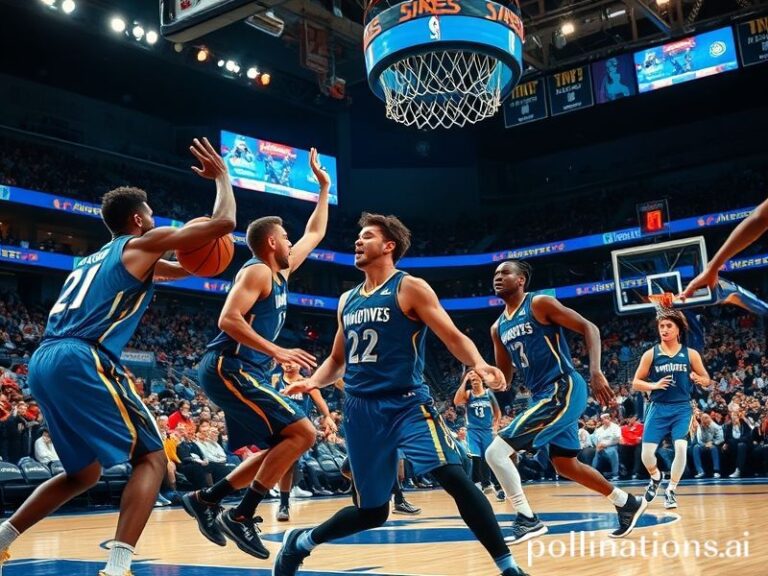BBC Athletics: How a British Broadcaster Turned Sweat into Soft Power
BBC Athletics: The Empire Strikes Track
By Our Man in the Cheap Seats, somewhere between a rain-soaked Zurich stadium and a Lagos bar with suspiciously good Wi-Fi.
It begins, as most modern tragedies do, with a push notification: “BBC SPORT LIVE – Follow every stride of the Diamond League!” Somewhere in the time zones, an insomniac in Manila is already 4,000 words deep into a live-blog about a pole-vaulter whose surname he can’t pronounce, while a Parisian office drone toggles between spreadsheets and slow-motion replays of a Norwegian hurdler’s hamstring detonating in HD. This is the new imperial relay: the BBC athletics feed, passing the baton of Anglophonic excitement from GMT to CST and back again, until the sun never sets on someone, somewhere, yelling “Gatlin’s still running?!”
Once upon a time, the British Broadcasting Corporation exported stiff upper lips, clipped vowels, and the certainty that God was an Englishman who preferred rugby. Today it exports split-second updates on a Cuban shot-putter’s visa status. The pivot is not accidental. International sport is the last growth stock in the attention economy that isn’t crypto or war crimes, and Auntie Beeb—cash-strapped, government-squeezed, but still clinging to the accent of authority—has discovered that sweaty quadriceps travel better than costume dramas. From Singaporean gyms streaming the London Marathon on mute, to Nairobi matatus blaring Seb Coe interviews over reggaeton, BBC Athletics is the soft-power sequel no one asked for but everyone scrolls past.
The numbers are almost charmingly dystopian. During last year’s World Championships, the BBC’s live page pulled in 34 million unique browsers, roughly the population of Peru deciding in real time whether Jakob Ingebrigtsen’s kick is more impressive than their lunch options. The commentary threads—equal parts biomechanics lecture and drunken confessional—are translated into 27 languages by freelancers who bill by the metaphor. A Sinhalese pun on “steeplechase” trends in Colombo; a Basque meme of a collapsing sprinter becomes Catalan graffiti within the hour. The planet, it turns out, will unite for anything except carbon reduction.
Meanwhile, the athletes themselves perform a delicate geopolitical ballet. When a Ukrainian high-jumper edges out a Russian rival, the BBC’s live text politely describes “a poignant embrace at the bar,” which is code for “they hate each other but Nike has them on the same retainer.” In the mixed zone, where reporters outnumber sweat molecules, every quote is pressure-tested for viral potential. “I just want to inspire kids” is the Swiss Franc of clichés: stable, boring, accepted everywhere. Try paying for dinner with “The West’s moral decline is embodied by false-start technology” and see how far it gets you.
Of course, the feed is not without casualties. Local broadcasters from Kingston to Kuala Lumpur grumble that BBC’s free highlights cannibalize their pay-per-view dreams, much as British tea once undercut Chinese cha. The International Olympic Committee, never an organization to miss a monetizable twitch, now demands geo-blocks faster than you can say “on your marks.” Viewers respond with the global citizen’s favorite pastime: piracy. One enterprising coder in Montevideo built a VPN plug-in named “LordReith’sRevenge.” It has 3.5 million downloads and a mascot that looks suspiciously like a middle-distance runner flipping the bird.
And yet, for all the cynicism, there is something almost heartening—if you squint—about watching a Bangladeshi teenager refresh a buffering stream to catch the women’s javelin final. In a world busy weaponizing every border, a 75-meter throw still arcs above them all. The BBC may be selling adverts between heartbreaks, but the audience is buying a shared grammar of awe. Even the darkest timeline pauses when someone runs faster than the excuses we make for ourselves.
So when the next push notification lands—“Can Norway’s Warholm outrun physics?”—remember you are part of a grand, involuntary fellowship: insomniacs, bureaucrats, dictators’ nephews on burner phones, all momentarily synchronized by the absurdity of watching other humans run in circles while the planet does the same. The empire never ended; it just got a live leaderboard.







